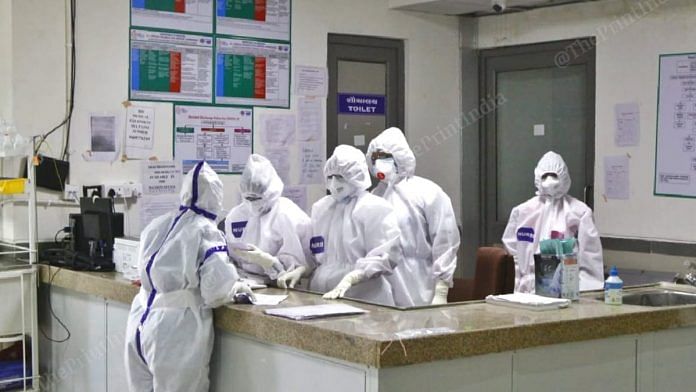I was surprised to hear my mom call for lunch already. It was definitely proving to be a productive day with all the studying, after all my third-year finals were fast approaching. A considerable chunk of exams in the pandemic have been held online but some of them, like mine, continue to be held offline for a variety of reasons.
As I sat down for lunch, my phone rang. It was my friend calling to ask if I had seen the college group and when I replied in negative, he at once let me know what had happened — the exams were postponed.
While a lot of students may empathise with me, the news may not really be surprising or shocking. After all, everyone who is a student during this pandemic at some point or the other, has been an unwilling witness to uncertainty.
In conjunction with uncertainty, students across the country have also faced other innumerable challenges and I am no exception.
But why are my challenges as a student any different?
Well, that’s because I’m an undergraduate medical science student and my challenges, despite being similar to students of other backgrounds, are also unique because they lend some perspective to the future of quality healthcare in India.
It isn’t that long ago that a bunch of us entered the surgery OPD on the first day of our clinical postings. To those of you unfamiliar with what that means, clinical postings start during the second year of MBBS where students are rotationally posted into different departments where they are taught clinically in the OPDs and wards.
In the first few days of my posting in surgery, my professor told us something that has stayed with me till date. She said: “No textbooks will ever teach you what a patient can. Every patient here is a textbook himself”.
She then went on to explain the need to attend postings and explained how the learnings from here would enable us to learn core clinical subjects in the final year. She made her point and as a result I was determined to be sincere with the postings.
That academic year, I learnt something from every department I was posted in. However, barely two weeks into my third year, in 2020, the year where clinical subjects start becoming our qualifying paper, I returned home. And this was the case for students from all years, even my seniors in their final year, which is structured around maximum clinical learning and hence considered crucial.
Needless to say, what followed was distressing and gloomy.
We had nine long months of online classes and then around December, medical colleges reopened and we had about three months of clinical classes before our exams in April to catch up for all the lost time.
Towards the end of those three months, things were definitely starting to look up. In another month or so, third year would be done and I would be in the final year, exposed to the clinical side, like how it should be.
The rise of the second wave crashed those hopes. While pending exams are a definite source of stress, I find myself and many others worrying about the fate of our final year, which to a large extent determines our competency as future doctors.
Online classes result in no clinical exposure
To us, online classes are synonymous to zero clinical exposure, which is not a good thing.
Clinical exposure effectively translates to clinical knowledge and skills. On one hand, skills range from history-taking and communication with patients and peers, to performing simple OPD procedures.
On the other, clinical knowledge helps to integrate and make sense of the knowledge that is gained theoretically.
For example, while one will read about shifting dullness on percussion in ascites (abnormal fluid build-up in abdomen), only on performing it physically on a patient does one grasp the entirety of it.
Overall, clinical exposure not only makes you a sound clinician but also fosters empathy, ward etiquettes, a sense of community and more importantly an approach that’s patient-centric.
Interns and Residents (PGs) inside the hospital seem to be facing a similar issue as well.
While interns are expected to gain proficiency and improve their skills comprehensively, residents over the span of three years are exposed to a wide variety of cases, skills and techniques. The pandemic unfortunately has been interfering with that very process. Residents are seeing far fewer cases both on variety and number than they would otherwise, owing to non-emergency cases taking a backseat.
The curriculum that transforms young medical students to doctors, although unintendedly, finds itself today offering no clinical exposure and if the example of the first wave is to be taken, it did nothing about it either.
Yes, I understand there is a raging pandemic going on and this might even be a very linear perspective but if not compensated right, what does it say about the future of doctors coming out of this very system. If seen collectively, it also impacts the future of quality healthcare as these issues are undeniably far reaching.
As I shared some of my concerns with my sister, to comfort me she said: “Don’t worry, it’s the same for everyone.”
But I can’t be comforted knowing that over three lakh medical students, who make up the future of healthcare in this country, are going through this too.
Malavika S.V. is a student of Thanjavur Medical college, Tamil Nadu



